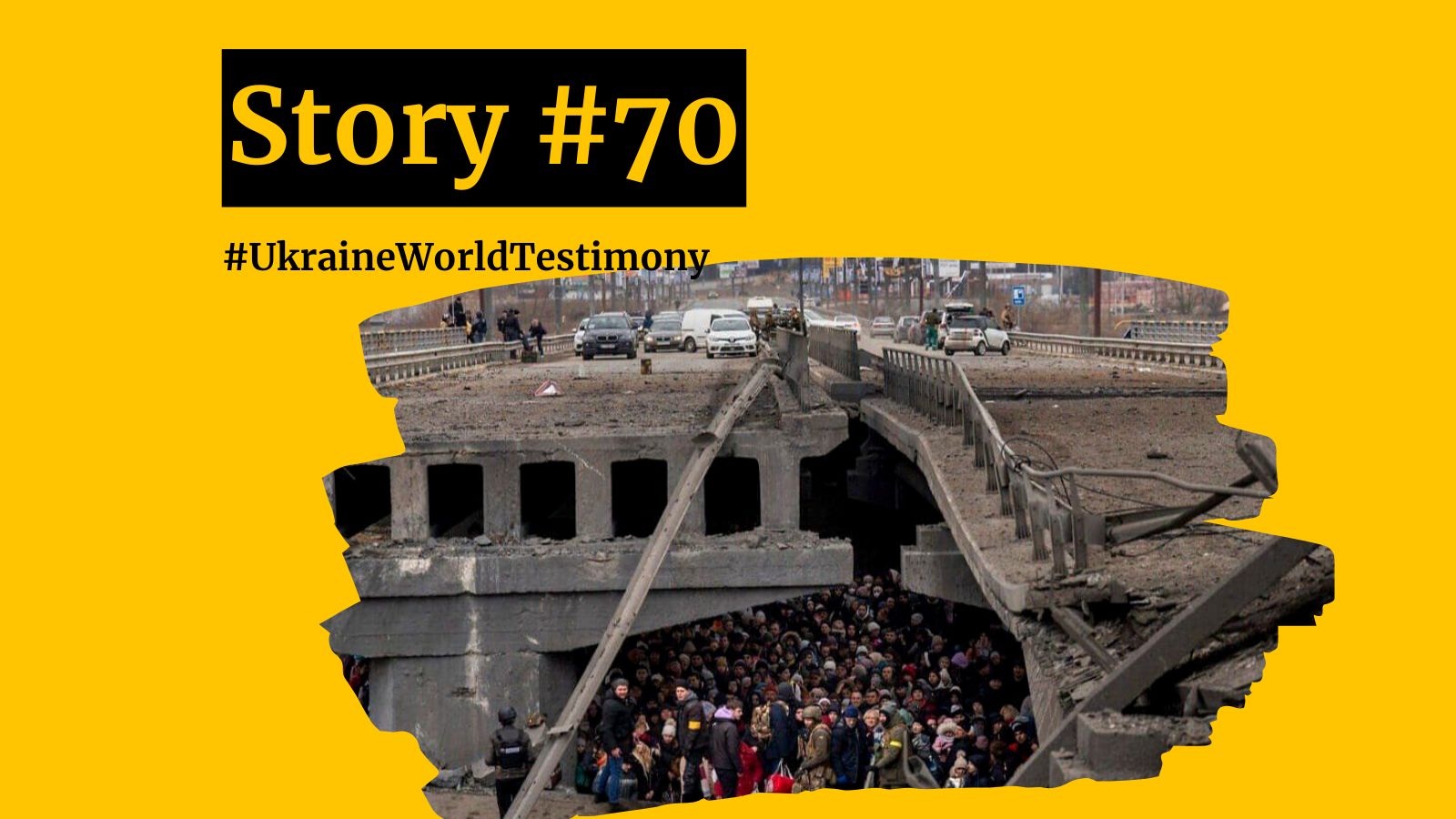
They had two children in the family, 7 and 9 years old. In the next two days, they waited for a planned evacuation, but they couldn't contact the city council to clarify the details of the departure.
On the third day, electricity problems began in Bucha. Since Iryna's family had not prepared for life at war, they had to resort to using expensive perfumed candles to light the underground parking garage where they were hiding from Russian bombs and shells.
After five days in the cold parking lot and unsuccessful attempts to contact the city council, the family decided to try to evacuate from Bucha on their own. It was extremely risky because Russian troops had surrounded the city as early as February 25, the second day of the invasion.
Iryna and her husband learned that the authorities were organizing an evacuation from the train station in neighboring Irpin. To get there, the family had to walk across half of Bucha and almost all of Irpin. Going there was as dangerous as staying at home, but at least it was some sort of attempt to save themselves rather than just waiting to die.
Iryna and her husband anticipated him not being allowed on the evacuation transport because priority was given to women and children. Were this to happen, they agreed that Iryna would get on the train with their children, while her husband would try to escape from the city through the forest.
On the way to the station, the family had to constantly throw themselves on the ground due to shelling. They had to step over the corpses of civilians killed by the Russians and carefully avoid stepping on unexploded shells. Iryna and her husband told the children to walk quietly, without unnecessary movements and sounds, lest they draw attention to themselves. The children obeyed.
When the family arrived at the station, they were told that the bridge over the Irpin River had been blown up to stop Russian tanks on their way to Kyiv. This meant that no one could leave Irpin now.
However, the mayor of Irpin, Oleksandr Markushyn, promised people that he would help them get out of the city. He gathered a crowd who wanted to evacuate and led them on foot to the Novoirpinska highway. In order to escape, people had to cross the destroyed Irpin Bridge. The photo of this evacuation went viral all over the world.
Iryna and her family were in the famous photographs of civilians evacuating underneath the bridge ruined by Russian airstrikes. She says that she never wanted this sort of fame.
Despite the shelling, the family was able to cross to the other side, towards Kyiv. There, everyone was put on evacuation buses, and Iryna’s family was taken to Poltava Oblast. Fortunately, she had relatives there, so the family stayed there for some time.
The family later moved to Lviv. After the de-occupation of Bucha and the news that it was possible to return to the city, Iryna's family came home. Luckily, their house survived, with only their windows damaged by explosions. The door of their apartment was opened, and the family’s small household appliances and all of Iryna's cosmetics were stolen. Surprisingly, the Russian marauders didn't take her designer handbags.
Even though the whole family made it through alive, Iryna couldn't return to normal life for a long time.
The occupation, shelling, and death that her family was forced to live through were deeply traumatic. Iryna's friend forced her to live by having her follow a step-by-step plan of daily activities: go to a coffee shop, go for a walk with her children, go to the salon to dye her hair, etc.
Gradually, Iryna’s anxiety diminished, and she was able to go back to work and begin living her normal life. However, she believes that she will never again be the person she was before her experience, and that her life will never be the same. If she could, she would erase all of the horrors she lived through from her memory.
This material was prepared with financial support from the International Renaissance Foundation.
